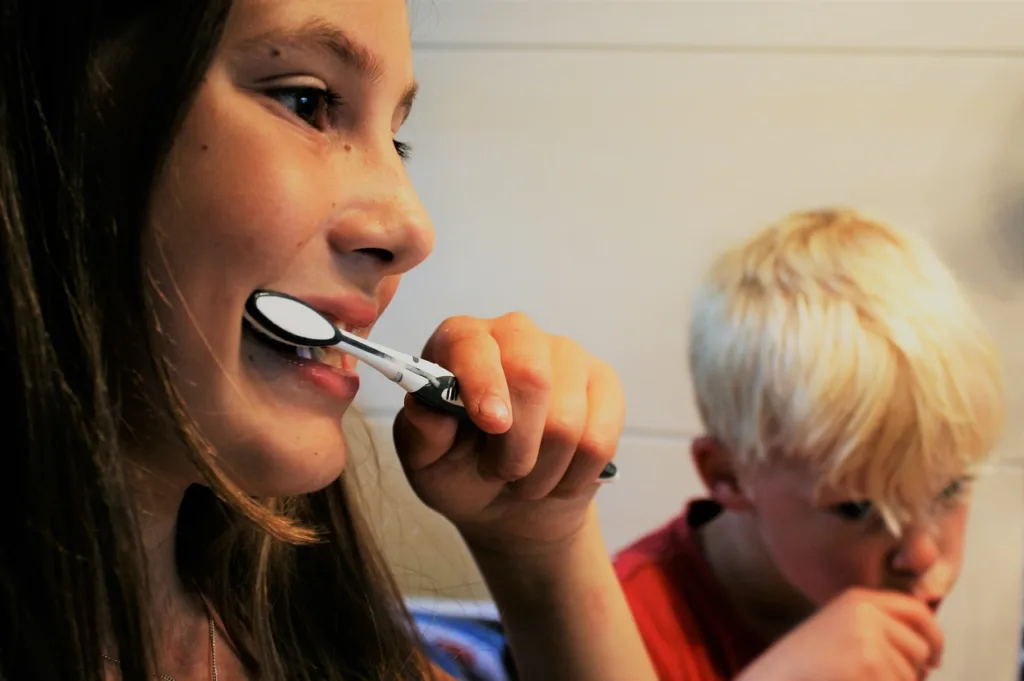Table of Contents
When Do Kids Start Losing Teeth?
As a parent, it’s important to understand the different stages of your child’s development. One of the most exciting milestones for young children is losing their baby teeth. It’s a sign that they are growing up and becoming more independent. But when exactly do kids start losing their teeth? In this article, we’ll explore the stages of dental development, when teeth start to fall out, and what to expect during this process.
Introduction
Losing baby teeth is a natural part of growing up. As children’s bodies change, so do their teeth. Understanding when to expect tooth loss can help parents prepare for this important milestone.
Understanding Dental Development
Before we dive into when kids start losing teeth, it’s important to understand how teeth develop. Babies are typically born without teeth, but they will begin to develop them shortly after birth. The process starts with the growth of tooth buds, which eventually form into teeth.
By the time a child reaches six months of age, their first tooth will usually begin to emerge. This tooth is typically one of the lower front teeth. Over the next few years, the rest of their baby teeth will emerge, until they have a full set of 20 teeth.
When Do Kids Start Losing Teeth?
As children grow, their baby teeth will eventually start to fall out to make room for their permanent teeth. This process typically begins when a child is around six years old, but it can start as early as four years old or as late as eight years old. The order in which teeth fall out can vary, but it usually follows a similar pattern.
The first teeth to fall out are typically the lower front teeth, followed by the upper front teeth. The molars and canines will fall out next, with the last baby teeth typically falling out by age 12.
What to Expect During the Tooth Loss Process
Losing baby teeth can be an exciting and scary time for kids. As a parent, it’s important to be prepared for what to expect during this process.
As a tooth becomes loose, it’s important to encourage your child to wiggle it gently to help it fall out naturally. If the tooth doesn’t fall out on its own after a few weeks, you may need to have it removed by a dentist.
Once the tooth falls out, it’s important to keep the area clean to prevent infection. Your child may experience some bleeding and discomfort, but this should go away within a few days.
Caring for Permanent Teeth
As your child’s permanent teeth emerge, it’s important to help them care for their teeth properly. This includes regular brushing and flossing, as well as regular dental checkups.
It’s also important to monitor your child’s diet to ensure they are getting the nutrients they need for healthy teeth. Foods that are high in calcium and vitamin D, such as dairy products and leafy greens, can help strengthen teeth and prevent decay.
Conclusion
Losing baby teeth is an exciting milestone for kids, but it can also be a stressful time for parents. By understanding when to expect tooth loss and what to expect during the process, parents can help their children through this important stage of development. With proper care, your child’s permanent teeth can last a lifetime.
FAQs
- Is it normal for a child to lose teeth before age six?
Yes, it’s possible for a child to start losing teeth as early as four years old. - Should I pull out a loose tooth?
No, it’s important to let the tooth fall out naturally to avoid causing unnecessary pain or damage. - What can I do to help my child with discomfort during the tooth loss process?
Encourage your child to eat soft foods, such as mashed potatoes and soup, and avoid hard or sticky foods that can make discomfort worse. You can also give them a cold compress to reduce swelling. - When should my child start brushing their permanent teeth?
As soon as their permanent teeth emerge, it’s important to start brushing them twice a day with fluoride toothpaste. - Is it normal for my child’s permanent teeth to come in crooked?
It’s common for permanent teeth to come in crooked, but if it’s causing issues with speech or chewing, it’s important to talk to a dentist about orthodontic treatment.
FOR MORE VALUABLE TIPS BUY OUR PARENTING COURSES AT https://www.kidzoot.com/courses/
CONSULT YOUR PERSONAL PARENTING SOLUTIONS VIA APPOINTINTMENT AT https://www.kidzoot.com/appointment-booking/
Follow Us on Twitter www.twitter.com/kidzootworld

